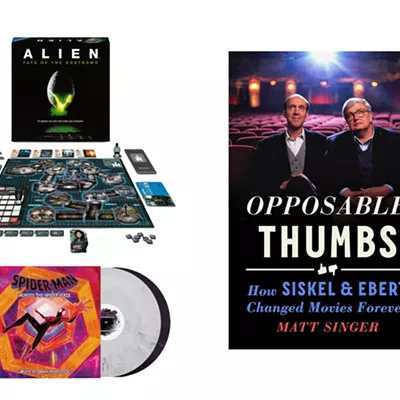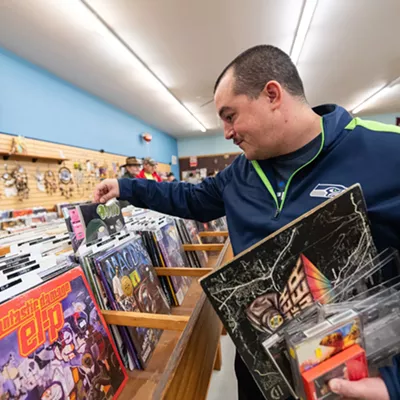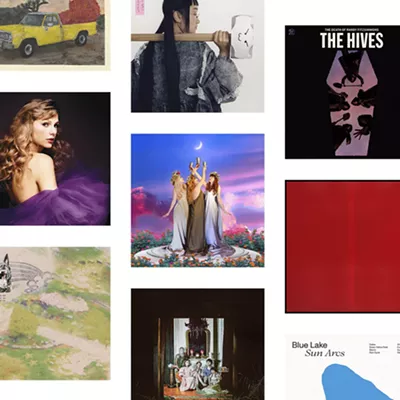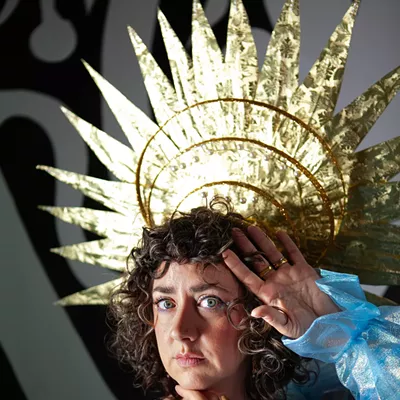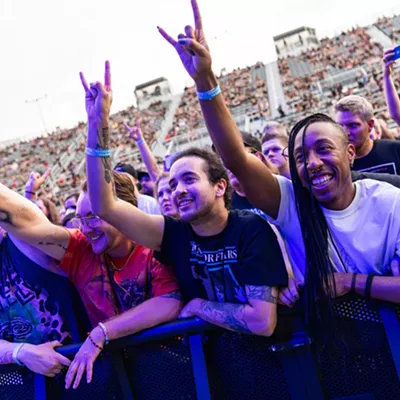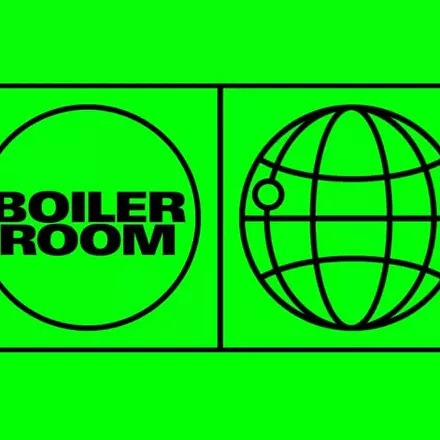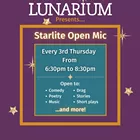My first car was a silver 1990 Buick Park Avenue handed down from my grandmother, and like all early '90s cars, it came equipped with a tape deck.
It always had a cassette loaded. Most were homemade: I'd buy blank Maxell cassettes, hook up a CD player to my parents' tape deck and dub my favorite albums — Ziggy Stardust on one side, Hunky Dory on the other.
The convenience of digital soon came calling, and I spent my first-ever tax return to swap out that tape deck for a stereo with a CD player. Every paycheck from my first job went almost exclusively to CDs, and I don't think I've listened to a cassette since.
In the last few years, though, I started to wonder if I'd been too hasty in throwing them out.
I saw touring indie bands selling tapes during their Spokane stops, and fans actually buying them. Friends are proudly posting pictures of their thriftstore cassette finds on Instagram. Artists are collaborating on limited-run cassette releases.
But this is not just a local trend.
The popularity of vinyl records has been increasing over the last decade: Per Nielsen Music, vinyl sales increased in 2018 by 15 percent from the previous year. Now it seems like cassettes are the next retro medium that could find a new audience.
According to the music database Discogs, cassettes hit their sales peak in 1994, an era when vinyl was being phased out and CDs were becoming an affordable option. Discogs also reports that, while CD sales continue to plummet, vinyl and cassette sales are on the rise. Cassette sales alone rose by 23 percent last year, with Nielsen logging 219,000 new units purchased in 2018.
If you've bought any of those new cassettes, they all came from the same place: Missouri's National Audio Company. It's the country's sole manufacturer of cassettes, and they're now producing more than 10 million a year.
It's where the garage-rock label Burger Records, which has released hundreds of cassettes since 2007, gets its supply. It's where Marvel Studios ordered millions of copies of the Guardians of the Galaxy soundtrack on tape. Urban Outfitters, too, has started selling tapes and tape players. There's even an annual Cassette Store Day, a spiritual cousin to the popular Record Store Day, where participating merchants offer a selection of limited, collectible releases.
Why are music fans, particularly in metal, rap and garage-rock circles, gravitating toward an audio format that most would consider obsolete?
"I don't think it's obsolete. I think CDs are obsolete," says Mike House, owner of Resurrection Records. The store's namesake record label has been in operation since 2009 — House opened the brick-and-mortar store in 2016 — and all its releases have been on wax or tape. House says he easily sells more tapes than CDs.
Another Spokane-based label, I Had an Accident Records, almost exclusively releases cassettes. Owner and operator Damien Miller acquired the Maryland-founded label in 2016, and says his on-tape output leans toward hip-hop and noise-rock.
"You can 'in-home' them, too," Miller says, "which I think is part of why they're coming back."
He's referring to the bands buying blank cassettes and dubbing their music, which is often the simplest (and cheapest) route. Local rock trio BaLonely put out their debut album Stories on cassette last year, and frontman Norman Robbins dubbed all 80 copies himself. It's something of an arduous process — he could only dub two tapes at a time, with both sides featuring the full 30-minute album — but it results in a more unique product.
"There are certain things you can hear in tapes that you can't hear in CDs, and vice versa," Robbins says. "One isn't necessarily better than the other."
Discogs partially attributes the cassette's unlikely resurgence to nostalgia, but there's another major factor at play: They're relatively inexpensive. For an indie band, it's way cheaper to produce 100 tapes than 100 vinyl records. Miller says a band's recent order of 130 cassettes, which includes dubbing and label printing, cost them $300. Compare that to another order of 100 7-inch vinyl records, which came with a $600 price tag.
And while it's about as cheap to burn CDs, discs don't seem to have the same appeal as tapes.
"Anyone can listen to the sound quality of a CD by streaming it," Robbins says. "[Tape] just has a different sound quality. I feel like it's a better selling point, especially if you include a digital download with it. It's like you're getting a CD and a tape in one."
All this tape talk might seem antithetical to the time we're in, when consumers are relying on streaming platforms in lieu of physical media. (Spotify alone reported 170 million active users last year.)
But that's also precisely why tapes are being coveted again: The tangibility is exactly what makes them special. At any time and without any advance notice, an artist's music can vanish from a streaming platform. A tape, as long as it's stored properly and treated with care, can last forever.
"I think people like being able to look at the artwork and the lyrics, and just being able to hold something that came from the artist is more impactful than it was a few years ago," Robbins says. "And the fact that you're able to fit a cassette tape in your pocket is huge for local bands."
Miller, who has his own cassette collection that he estimates contains at least 1,200 tapes, grew up with the medium, and he still has an obvious fondness for it.
"I think with the older generation, it's the nostalgia," he says. "I have a lot of old cassettes that I listened to when I was a kid. And maybe to the younger generation, it's just something different." ♦




